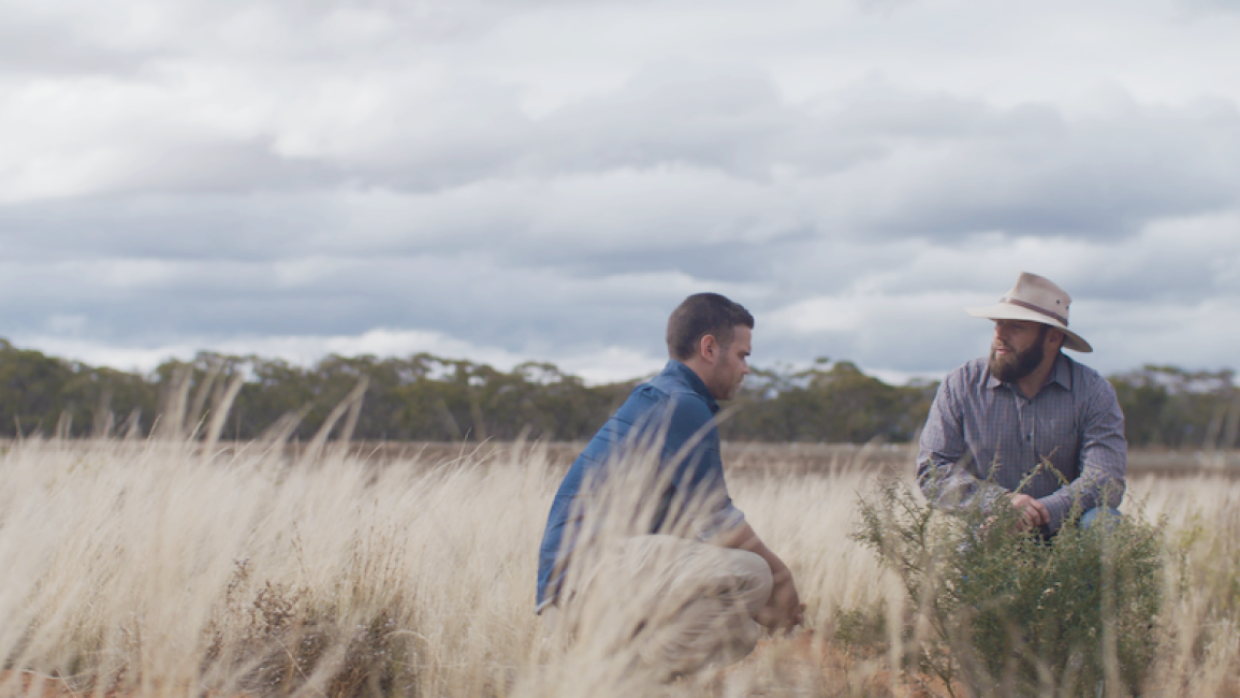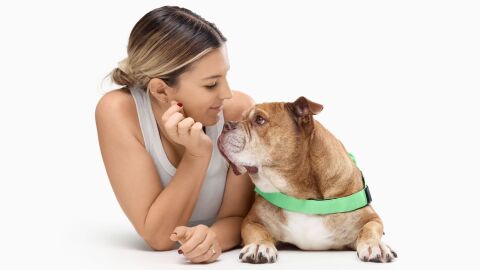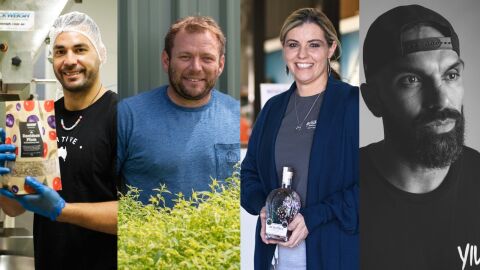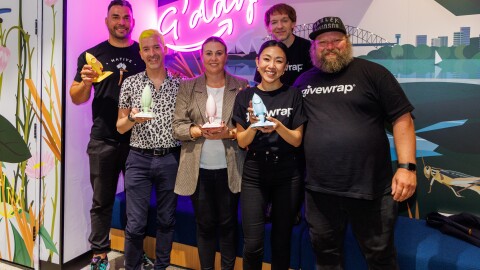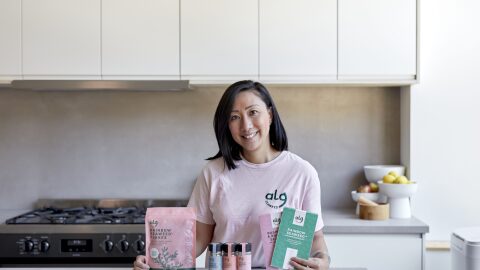Ancient, rich in art and storytelling, and with a powerful connection to Country—for more than 60,000 years, Australia’s First Nations people have been custodians of the Great Southern Land we all call home. And with NAIDOC Week just around the corner, there’s no better time to both celebrate Aboriginal and Torres Strait Islander culture, and to shine a light on the raft of modern-day Indigenous businesses who are continuing their ancestors commitment to protecting Australia’s natural environment.
Calling for greater protection of lands, waters, and sacred sites from destruction; ‘heal country’ is the central theme of this year’s annual week-long celebrations, and it’s an ethos that is lived and breathed by these Indigenous business owners. These inspiring eco-minded entrepreneurs have partnered with Amazon Australia to take their sustainability principles—and their products—to a larger, global audience.
Read on to hear their stories, and to find out how you can champion these Indigenous sellers, and to do your bit to help heal Country at the same time.
Soil meets soul: How this farmer is applying Indigenous principles to perfect his produce
For Indigenous Australians, land isn’t just soil or rocks or minerals, but a whole environment that sustains and is sustained by people and culture. And so it is for South Australia-based farmer, Dom Smith, whose connection to Country has been a lifelong driving force.
“I’ve always had a love of nature and growing things,” he says. “I definitely inherited my maternal grandmother's green thumb!”
Though previously a commercial crop farmer, Dom knew that something was missing, which led him to complete a certification in conservation and land management, before finishing a course in aquaponics — a system of aquaculture.
“Crops using this method are much less taxing on the environment, and use less water, land and labour, than traditional agriculture,” he explains.
This passion translated into Pundi Produce — an aquaponic seven-hectare farm in the sun-drenched Riverland region of South Australia — that grows native fruit, vegetables and herbs, such as river mint, saltbush, lemon myrtle, wattle seed, warrigul (native spinach) and bush tomatoes.
Switching to natives because of its overall sustainability, coupled with a connection to his indigenous roots, Dom has since partnered with Amazon Australia to expand the reach of his customer base — both locally, and internationally.
“Amazon has really helped grow my business,” he says. “And this has also helped grow the awareness of native Australian foods overseas.”
But it’s not just about world-class produce. For this big hearted farmer, going native has become a vehicle for another passion project: to help provide opportunities for other young indigenous people in his community.
“My mission, with everything I do, is to heal and to connect the land back to culture,” he says, smiling. “I want to use my farm as a learning environment, whereby young people from underprivileged or underserved communities can acquire farm skills, and one day, be able to apply them to their own properties.
“That’s what really matters to me — providing opportunities to the next generation of Indigenous kids. They’re the future, and they give me hope.”
Nourishing and native: The hair and skin care range that’s all-natural, and all-Australian

When Canberra-based mum-of-two, Julie Okely, struggled to find haircare products that were kind to both her locks, and to the planet, she decided to make her own. And when it came to inspiration, the proud indigenous woman from Kamilaroi Country in North West NSW, looked to her ancestors and the land around her.
“I knew that I wanted products using only native ingredients,” she says.
A hairdresser by trade — and serial salon owner with 30 years of experience — Julie began by drawing upon the wealth of native botanicals, which had been used by First Nations Australians for centuries due to their medicinal and curative properties.
“We began by mixing and testing specific botanical elements,” she explains. “This allowed me to work alongside, and support, authentic Indigenous suppliers."
The result? Dilkara Australia. Launched in 2013, the Indigenous-owned business combines traditional knowledge with scientifically-proven formulas, creating effective natural hair and skincare products that are 100 percent organic, 100 percent Australian, and 100 percent cruelty-free.
“The Dilkara brand is all about embracing our culture,” explains Julie. “About bringing together the old and the new. I love the ancient cultural practices that have been used to grow and harvest all native elements.”
True to her authentic and holistic approach, Julie has also taken great care to ensure all products are sustainable and environmentally-friendly. Even the packaging is entirely Australian sourced.
Now spanning an impressive line of more than 60 items, from shampoo and face wash, to hand sanitiser and conditioner, Julie says that her next goal is to share the uniquely Australian ingredients — and their beautifying properties— with the rest of the world.
“I want to expand internationally and to take Dilkara overseas. Thankfully, working with Amazon Australia, who have given us access to a huge international audience, is helping to make this dream a reality.”
Eat local: Meet the business feeling the native ingredient revolution
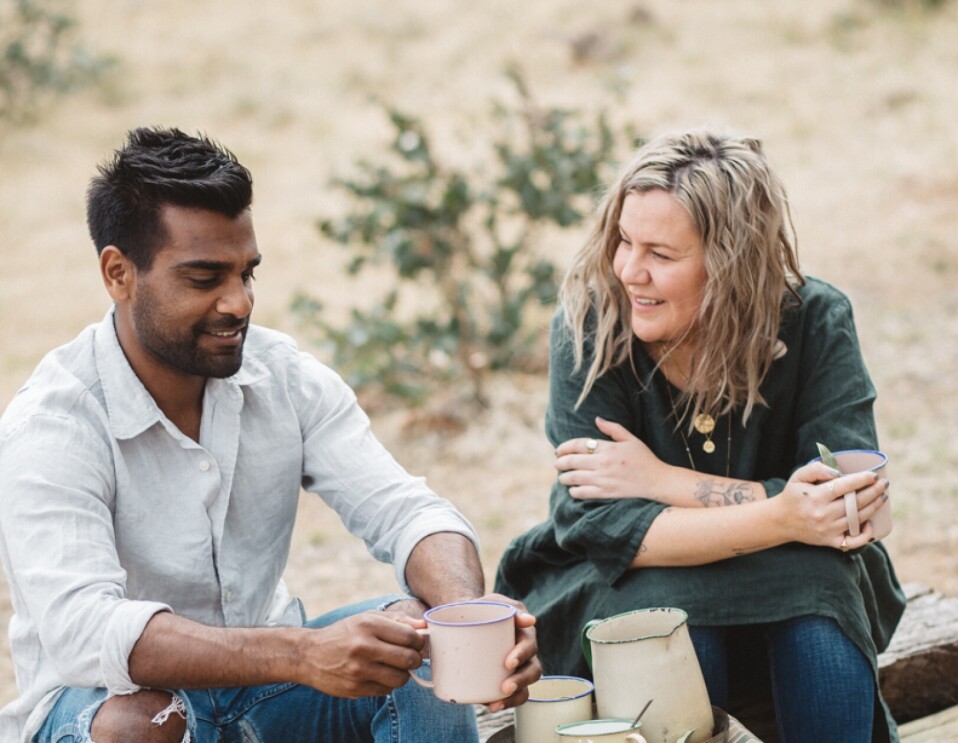
From gin distilleries to fine dining degustation menus; the use of native Australian ingredients has been gaining momentum over the last few years. And one of the businesses that have helped spearhead this foodie revolution is Warndu.
Meaning ‘good’ in the Adnyamathanha language — the language of one of the brand’s Indigenous founders — Warndu’s primary goal is to encourage us to look to our own backyards for sustenance, and to rediscover Australia’s rich 60,000-year-old heritage of native plants, nuts, seeds and proteins.
“We use this country's native flora to help create meaningful meals that are local and seasonal in the truest sense of the word and to foster a strong connection to country,” says founders, Damien Coulthard, Rebecca Sullivan, and Siobhan O'Toole.
Damien — a proud Adnyamathanha country man, who works directly with community harvesters, Rebecca — a cook, sustainability advocate and regenerative farmer, and Siobhan — an experienced business consultant, launched the business back in 2016, with a mission to bring bush tucker knowledge into modern-day kitchen pantries.
“Every product we make includes one or more native Australian ingredients made using locally sourced, seasonal produce,” they say.
Their extensive range includes everything from dried finger lime and lemon myrtle packs, to bush tomato and macadamia Dukkah and native teas. But it’s not just the ingredients — Warndu also provide the know-how via their co-authored Warndu Mai Good Food cookbook, which contains easy recipes for including Australian native foods into their meals.
“It’s so important to look to the wealth of foods that we have in Australia,” they enthuse. “People are seeing the value in it, not just culturally, but also environmentally, and from a health perspective as well.”


